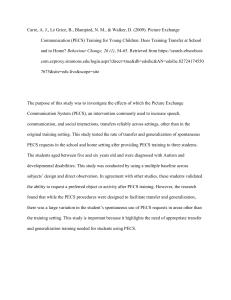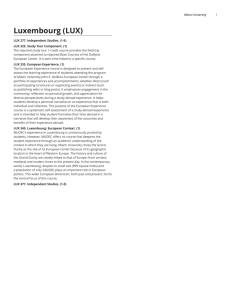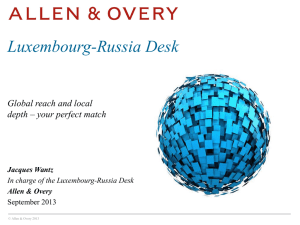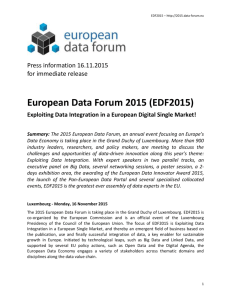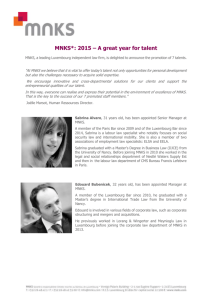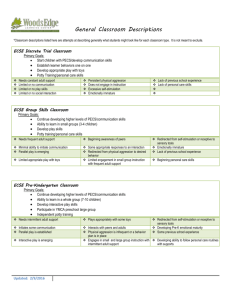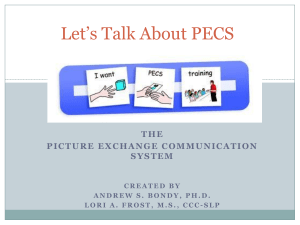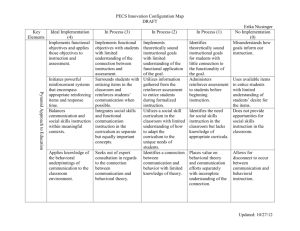Hybrids - Luxembourg
advertisement
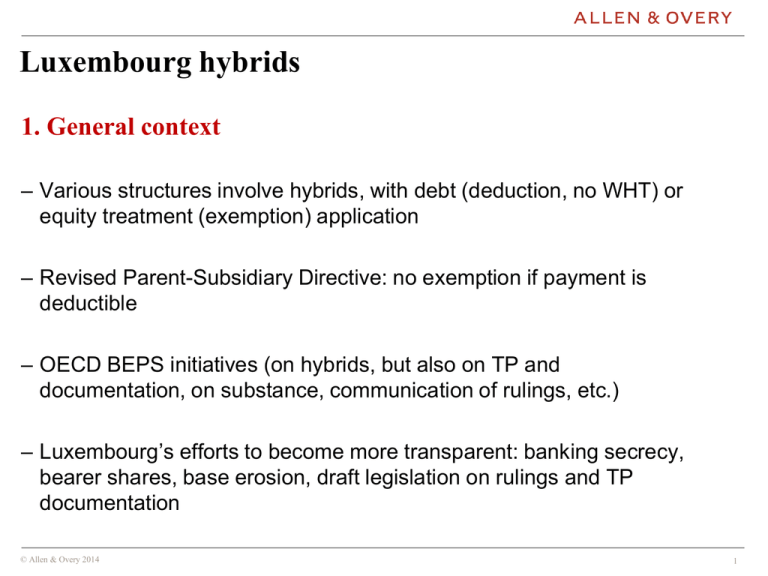
Luxembourg hybrids 1. General context – Various structures involve hybrids, with debt (deduction, no WHT) or equity treatment (exemption) application – Revised Parent-Subsidiary Directive: no exemption if payment is deductible – OECD BEPS initiatives (on hybrids, but also on TP and documentation, on substance, communication of rulings, etc.) – Luxembourg’s efforts to become more transparent: banking secrecy, bearer shares, base erosion, draft legislation on rulings and TP documentation © Allen & Overy 2014 1 2. Hybrid financial instruments (D/NI): the PECs/CPECs example PECs issued by Lux Co. are treated as debt in Luxembourg, giving rise to deductible interest payments. The PECs are treated as equity in jurisdiction A and, therefore, the payments are exempt as dividends. 2. Defensive rule • Country A must include payment as "ordinary income" if Luxembourg does not apply primary rule • No dividend exemption Luxembourg 1. Primary rule Luxembourg refuses deduction if payment is not recognised as "ordinary income" in jurisdiction A. NI encompasses long-term tax deferral, but reasonable differences in timing of the recognition of payments do not constitute a mismatch. PECs are, from a Luxembourg perspective, comparable to a loan. © Allen & Overy 2014 3. Hybrids: impact on US structures? US LP US LP US LP If US does not disregard Lux HoldCo: • US tax benefit is just a deferral of taxation until payments are made under the PECs. To the extent payments are made in a "reasonable" time period, than the PECS/CPECs should not be considered as hybrid financial instruments (i.e. interest should remain deductible in Luxembourg). • It is unlikely that the US will change its international tax rules in the short term. US LLC CPECs PECs Lux HoldCo Loan TargetCo © Allen & Overy 2014 3 4. Prevention of treaty benefit – Obtaining treaty benefit was one of the main purposes of the structure – Holding companies with adequate substance and diversified investments – WTO and customs duties – Legal unsafety, impact on funds and private equity – Impact on freedom of establishment in the EU (only wholly artificial arrangements may be challenged) © Allen & Overy 2014
